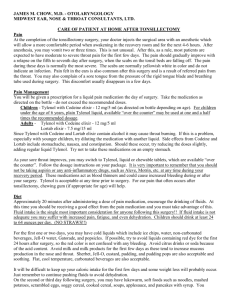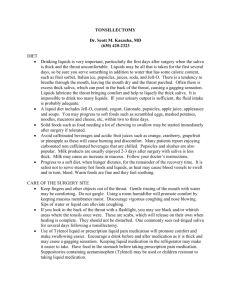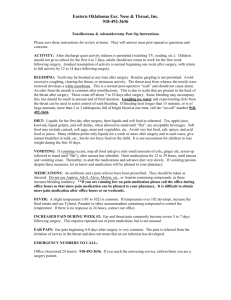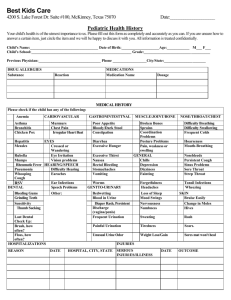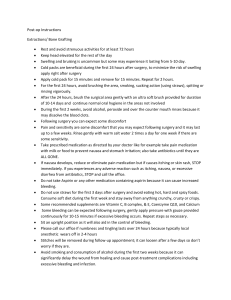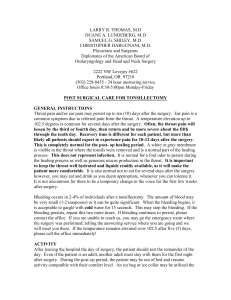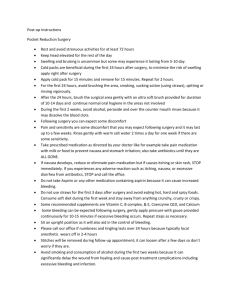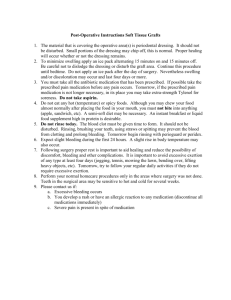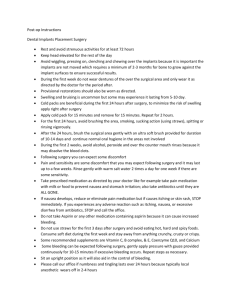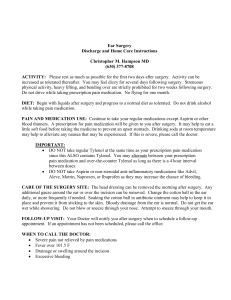TAPost-OpInstructions
advertisement
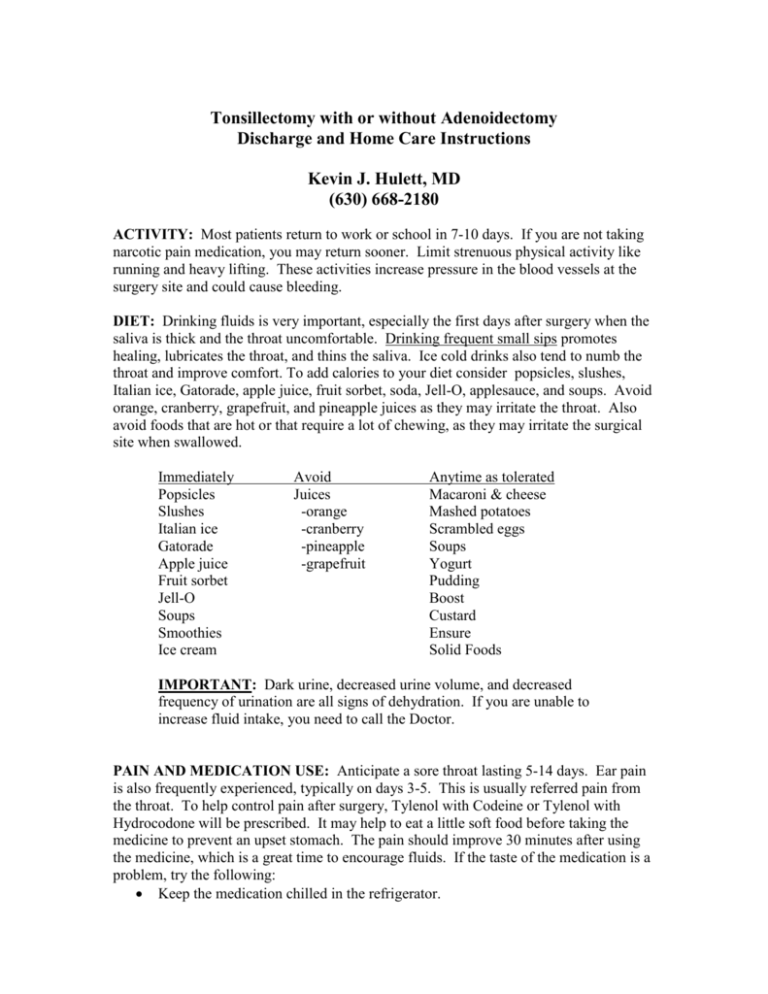
Tonsillectomy with or without Adenoidectomy Discharge and Home Care Instructions Kevin J. Hulett, MD (630) 668-2180 ACTIVITY: Most patients return to work or school in 7-10 days. If you are not taking narcotic pain medication, you may return sooner. Limit strenuous physical activity like running and heavy lifting. These activities increase pressure in the blood vessels at the surgery site and could cause bleeding. DIET: Drinking fluids is very important, especially the first days after surgery when the saliva is thick and the throat uncomfortable. Drinking frequent small sips promotes healing, lubricates the throat, and thins the saliva. Ice cold drinks also tend to numb the throat and improve comfort. To add calories to your diet consider popsicles, slushes, Italian ice, Gatorade, apple juice, fruit sorbet, soda, Jell-O, applesauce, and soups. Avoid orange, cranberry, grapefruit, and pineapple juices as they may irritate the throat. Also avoid foods that are hot or that require a lot of chewing, as they may irritate the surgical site when swallowed. Immediately Popsicles Slushes Italian ice Gatorade Apple juice Fruit sorbet Jell-O Soups Smoothies Ice cream Avoid Juices -orange -cranberry -pineapple -grapefruit Anytime as tolerated Macaroni & cheese Mashed potatoes Scrambled eggs Soups Yogurt Pudding Boost Custard Ensure Solid Foods IMPORTANT: Dark urine, decreased urine volume, and decreased frequency of urination are all signs of dehydration. If you are unable to increase fluid intake, you need to call the Doctor. PAIN AND MEDICATION USE: Anticipate a sore throat lasting 5-14 days. Ear pain is also frequently experienced, typically on days 3-5. This is usually referred pain from the throat. To help control pain after surgery, Tylenol with Codeine or Tylenol with Hydrocodone will be prescribed. It may help to eat a little soft food before taking the medicine to prevent an upset stomach. The pain should improve 30 minutes after using the medicine, which is a great time to encourage fluids. If the taste of the medication is a problem, try the following: Keep the medication chilled in the refrigerator. Hold cold water or an ice cube in the mouth for a minute to numb the taste buds. Spit out the ice cube and take the medication followed by additional sips of cold water. Drinking soda at room temperature may help to alleviate any nausea that may be experienced. If this is severe, please call the Doctor. IMPORTANT: DO NOT take regular Tylenol at the same time as your prescription pain medication since this ALSO contains Tylenol. You may alternate between your prescription pain medication and over-the-counter Tylenol as long as there is a 4 hour interval between doses. DO NOT take Aspirin or non-steroidal anti-inflammatory medications like Advil, Aleve, Motrin, Naproxen, or Ibuprofen as they may increase the chance of bleeding. CARE OF THE SURGERY SITE: Keep fingers or other objects such as straws out of the mouth. Gentle rinsing of the mouth with water may be comforting, but do not gargle. It is not unusual to see blood tinged saliva for several days following surgery. You may notice black or white areas in the back of the throat where the tonsils once were. These scabs will release as the throat heals. They should not be disturbed. Discourage vigorous coughing or nose blowing. A room humidifier may help to keep the mucous membranes moist. FOLLOW-UP VISIT: You need to have a follow-up appointment 2 weeks after surgery. WHEN TO CALL THE DOCTOR: Fever over 101.5 F Severe pain not relieved by pain medications Bright red bleeding from the mouth or nose. If significant bleeding, call the doctor AND go directly to the Emergency Room. No urine output or unable to drink liquids
